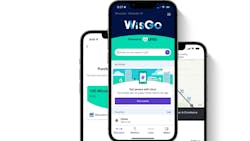MCTS provides update on WisGo, the new fare collection system
Milwaukee County Transit System (MCTS) announced it will transition to its modernized fare collection system in three phases that includes estimated timeframes provided there are no further supply chain delays.
The new system is expected to launch in mid-2023, alongside Milwaukee County’s first bus rapid transit (BRT) service, introducing a new era of transit in Wisconsin.
“Metropolitan Milwaukee is transforming into a world class city, with more conventions, cruise lines to our port, internationally recognized sports teams, additional airline services, leading hospital systems and institutions of higher learning. That's why modern transit is a necessity—to meet the changing needs of employers and residents alike—and MCTS is ready to deliver it,” said Kristina Hoffman, spokesperson, MCTS.
Phase I
During Phase I, after an extensive review of requirements and completing the proposal process, MCTS says it chose Cubic’s Umo Mobility Platform for its innovative and flexible back office, user-friendly mobile application, hardware compatibility and widest solution for a retail network. MCTS switched to a new mobile app to accommodate the account-based system and is set to begin installation of validators on buses throughout the winter.
The rider experience will include the full benefits of the new fare collection system via the Umo app once the system is available in 2023. Until the full WisGo system launches, MCTS encourages riders to continue downloading the Umo app in the Google Play and Apple Store. By creating an account via the app, riders will be able to transition to the new system more smoothly. To date, more than 34,000 riders have downloaded the app to plan their trip, track their bus and pay their fare.
MCTS reminds riders that until the new fare collection system launches, payment options through the app are still currently limited to credit, debit cards, and coming this month, Apple Pay and Google Pay. There is no stored value option enabled yet which means all fares activate immediately so riders should not purchase their fare via the app until they are ready to board the bus. Riders can purchase single fares and a day pass via the app. Group fares are possible via the M-Card only. M-Cards will be valid until mid-2023. Cash will remain an option.
Phase II
Phase II kicks off the pilot, slated for spring of 2023. Select social service agencies, Commuter Value Pass customers, U-Pass university participants and MCTS employees will test the new system and provide feedback. MCTS will make necessary adjustments and then roll out the live system in Phase III.
Phase III
The full WisGo system and BRT line are expected to go live by Phase III, mid-2023. Through the Umo mobile app and contactless smart cards, riders will be able to create accounts that will automatically track rides, deduct the amounts from their online accounts and cap total costs at the lowest daily, weekly and monthly rates. This fare capping provides equitable pricing for everyone, as costs are adjusted based on rider frequency.
The launch will coincide with the start of MCTS’s new BRT service. The BRT E-W Line will reimagine travel to and from downtown, change the entire pedestrian environment, foster cleaner air and connect thousands of employees to jobs through high-frequency electric bus service. MCTS says federal, state, city and county government officials have embraced the shared goal to bring about these changes through enhanced public transit.
“We can’t wait to roll out a modern fare collection system for our riders. Our intent is to make not only taking the bus easier but getting to wherever riders want to go more convenient,” said Hoffman. “The simple name, ‘WisGo’ means we connect you to where you’d like to go.”
